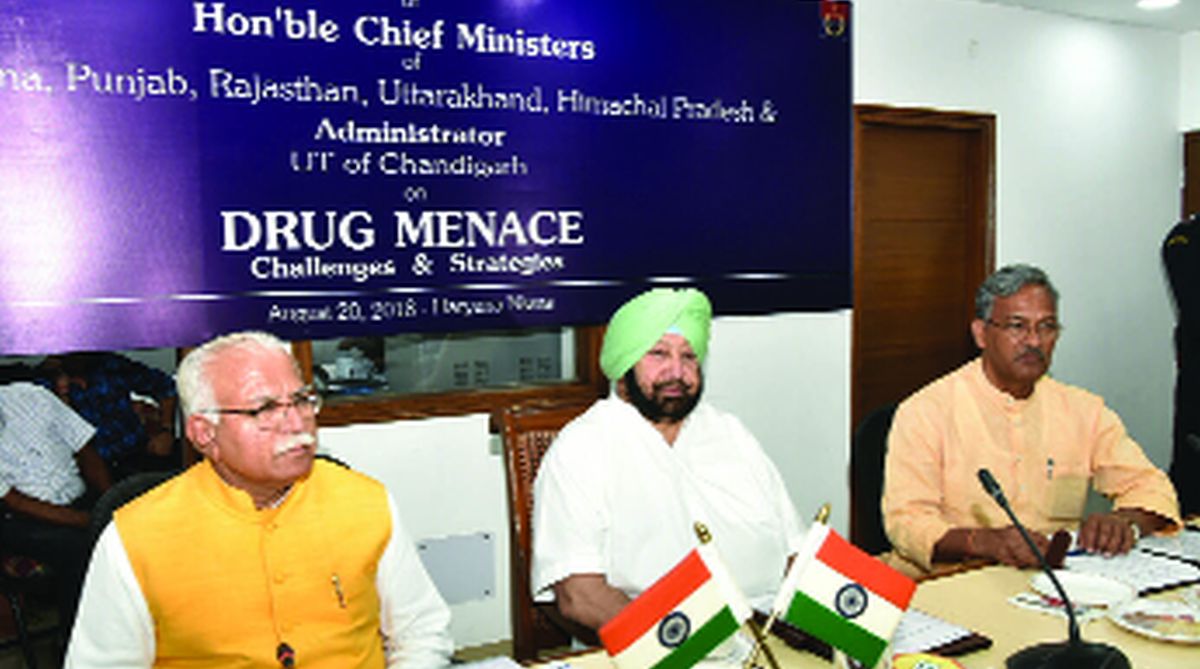To fight the drug menace, the Chief Ministers of four northern states on Monday decided unanimously to share drug trade related information and set up a common secretariat in Panchkula, for the purpose.
A joint statement issued after the Regional Conference of CMs, convened by Haryana CM Manohar Lal Khattar on the issue of drug menace, challenges and strategies, said nodal officers will be deputed by each of the states to coordinate the information sharing process.
Advertisement
Besides Haryana CM Khattar, the conference was attended by Punjab CM Amarinder Singh, Uttarakhand CM TS Rawat while Himachal Pradesh CM Jai Ram Thakur participating through video conference as he was unable to land due to bad weather.
Senior civil and police officers from these states, as well as Rajasthan, Delhi and Chandigarh, were also present at the meeting, aimed at evolving a joint strategy against drugs, overcoming all political and regional divides.
The joint statement said all states agreed to meet every six months to review progress on various action points on three dimensions agreed upon in today’s meeting. “We also agreed to invite the CM of Uttar Pradesh and senior officers of Jammu and Kashmir in future,” it said.
“On the Enforcement side we agreed on the need for more proactive and quick information exchange on drug trends, cases registered, persons named, wanted or arrested beginning from today. We hope to ‘deliver as one’ with the full might of the law in a crusade like manner to break and demolish the supply chains,” the statement said. The participating states agreed for monthly meeting of their Special Task Forces and quarterly meetings at the level of Home Secretaries to build inter-agency trust.
On the preventive side, all states agreed on the need for a multidisciplinary approach that puts boys and girls at the centre of our joint response.
Those who are the most vulnerable whether in schools, colleges, universities, their residential buildings or outside deserve our special attention, the statement said.
“To ensure that no child ever falls prey to pessimism we shall undertake concerted efforts at engagement and awareness generation by various departments including those of education, health, skill development along with non-governments and community organisations. It would be very important to harness the powers of social media in enabling our youth to emphatically say NO to drugs,” it added.
On the de-addiction side, all states agreed to invest more resources in setting up of more centres and strengthening the existing ones whether in the public or private sector.
“We agreed to go in for intensive identification of “at high risk” individuals and addicts and their prompt medical treatment. We agreed to strengthen the work at the grass roots through use of all possible technologies to make more and more of our villages, mohallas and cities drugs free,” the statement said.











